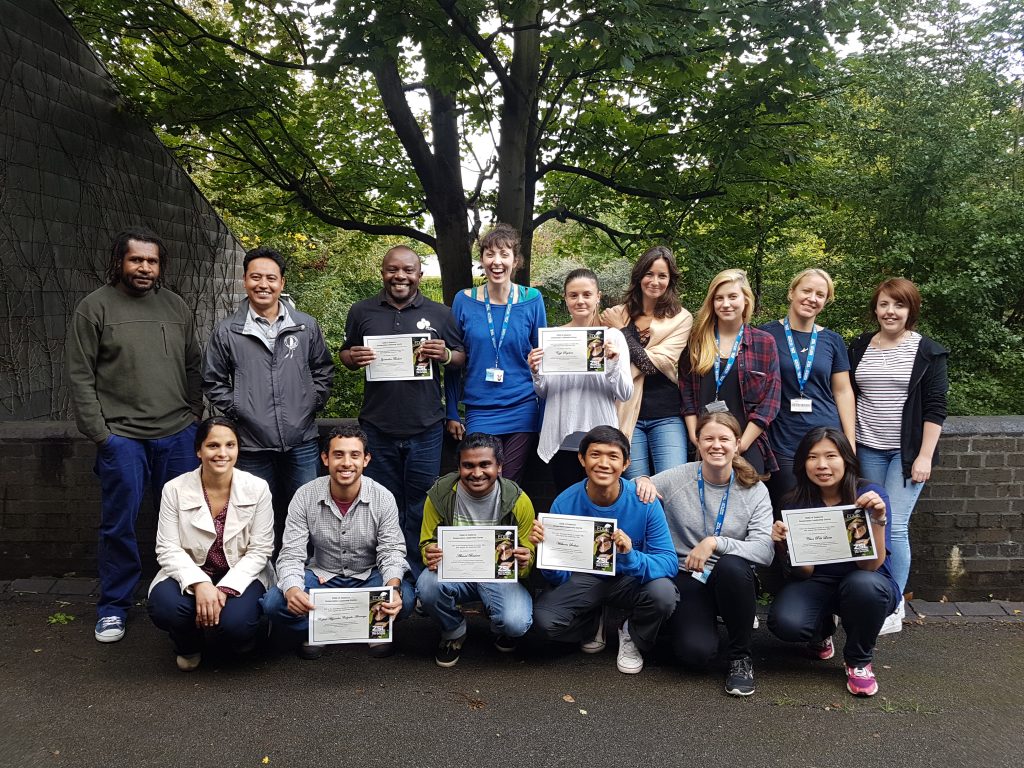Earlier this month our 2016 cohort of EDGE Fellows flew all the way to London, UK, to visit ZSL for their Conservation Leadership course. Their two year Fellowships have flown by, and now is the time to begin their journey as future conservation leaders in their countries. The Conservation Leadership course helps to give them all the tools they’ll need to continue and grow their projects post-fellowship, with topics such as science communication, conservation conflicts and engaging with corporates among those covered.
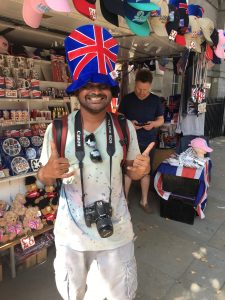
Travelling to ZSL was in itself an experience for the Fellows, many of whom had never been to the UK before. “London truly is an amazing place to visit, especially when you are from a developing country in the tropics”, said Daniel, from Papua New Guinea. “Different biodiversity and quite a different environment. A lot of historical sites and structures around – it was amazing seeing some of them like the Tower of London and Tower Bridge!”
Soon after their arrival the Fellows were gathered in the classroom where they would spend the next two weeks learning with the other EDGE Fellows – Alejandro, from Mexico, talks about being reunited with his friends; “The first day I had the opportunity to meet everyone again for the first time since the Conservation Tools course in the Philippines. Everybody shared their experiences from more than a year of working on their projects. It was so interesting to hear about the various challenges but also achievements they had had so far”.
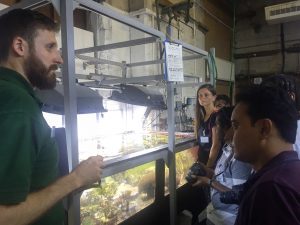
After a good catch up (and a tour of the zoo of course!) the hard work started. The Fellows would learn not only technical skills which will help them in their work, but also to better understand themselves to become effective leaders. As Bernard from Kenya explains; “Through the leadership and teamwork training I came to realize that my leadership style is as a ‘feeler’ – while all along I thought I was a no-nonsense ‘thinker’!” Experts from both within and outside of ZSL gathered to share their knowledge and experience of the challenges that the Fellows might expect to face in the future.
There were some serious lessons to learn too. Ezgi, from Turkey said; “I realise now that the way that we deliver the conservation message is crucial. And conservation is not just related to habitat, the species and/or conservation actions that you take – it is also related to people”. “Conflicts are often a part of my research as I work in a volatile Human-Wildlife-Conflict zone,” said Bernard, “the lesson I had in ‘Understanding Conservation Conflicts’ will go a long way in helping me to be an inclusive and interactive field worker with reduced prejudice towards those who challenge our conservation work”.
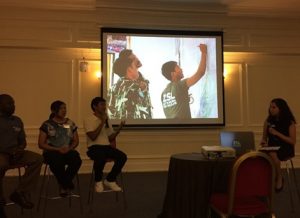
One of the biggest highlights of the course was the EDGE drinks reception event, where the Fellows met conservation professionals, funders and EDGE supporters from across the UK. There they presented scientific posters and tested out their newly-drafted elevator pitches with the public, and four of them took part in a live on-stage interview to discuss their projects. This was also a particularly special year for the EDGE programme, as Gai from Thailand explains; “the training course this year was held on the 10 year anniversary of EDGE. It made me feel special – we were very lucky to be here this year”. Jyotendra, from Nepal, relished the opportunity to discuss his project with the public; “a highlight of the course was the poster presentations during EDGE’s 10th year celebration event. It was really nice to see all of the good work that the Fellows are doing and their enhanced confidence levels since we met in the Philippines”.
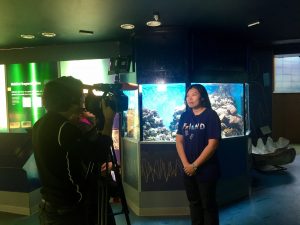
There were some surprises in store during the course too – especially for Poh Leem, from Malaysia, who was unexpectedly asked by London Live to be interviewed for a news segment. Ever the professional, Poh Leem was happy to oblige. On their day off the Fellows were also treated to a tour of Whipsnade zoo where they met a very special resident – a greater one-horned rhino.
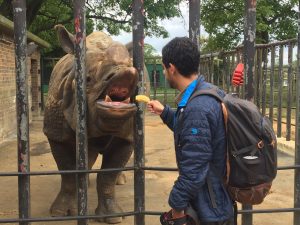
Now that their EDGE Fellowships are nearing an end, the Fellows have started to reflect on why they applied for them in the first place – and what they have achieved in less than two years of work.
“The EDGE fellowship has been a huge part of my achievements over the past 18 months” says Basheer, from the Maldives. “Working on the project provided me with the confidence and encouragement to further my education – I recently started my Undergraduate degree in Environmental Management from The Maldives National University. One of the best highlights through this journey was getting the chance to present my research at a Maldivian Marine Symposium”.
“I applied for the EDGE Fellowship because I knew that it would be the first big challenge for me as an early-career conservationist” said pangolin researcher Gai. “I gained and improved a lot in many skills like research techniques, methods and particularly in how to plan and manage conservation projects effectively. The programme makes me proud to work on a very threatened species in my own country, as I feel like I can really help the species.”
“The programme has really helped my personal development as a conservationist. For example, the opportunity to present my project results to different audiences has helped me to increase my confidence in myself”, said Alejandro. “I would recommend applying for an EDGE Fellowship to all young people who want to increase their capacity and skills to protect wildlife through a conservation project in their countries. I am sure that this experience will change their lives”.
Poh Leem described her experience in a rather interesting way: “Early career conservationists are vulnerable groups, especially in developing countries. I would say that the EDGE programme is like a nursery for small fish like us!”
In the end though, we have to agree with Ezgi: “I am very proud to be a part of this family”.
